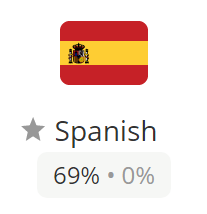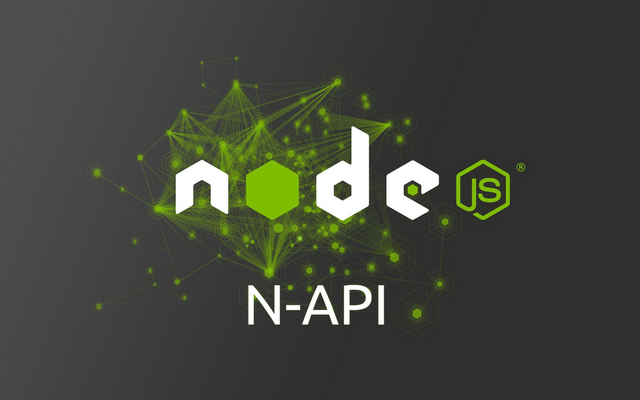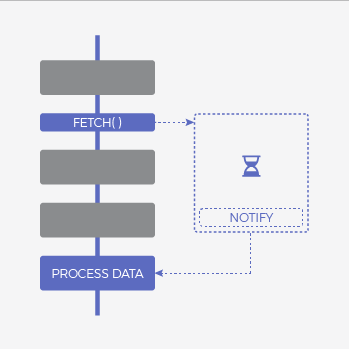Node.js Translation to Spanish - (1521 words) (Part-69)

Repository
https://github.com/nodejs/i18n
Project Details
Node.js is an open-source, cross-platform JavaScript run-time environment that executes JavaScript code outside of a browser.
Node.js came into existence when the original developers of JavaScript extended it from something you could only run in the browser to something you could run on your machine as a standalone application.
In simple words, it's an open source execution environment for developing web applications, which is event-based, it uses the V8 engine to provide an execution environment that compiles and executes JavaScript at a higher speed. It is possible to run Node.js without any restriction on Windows, Linux and Mac OS X.
It should be noted that it is NOT a server language, this means that it executes code, so it could be understood as an interpreter.
Contribution Specifications
Node.js is currently being translated into 33 languages. I'm contributing to translate it into the Spanish language.

Translation Overview
For this contribution, I have finished translating the N-api.md folder.

N-API (pronounced N as in the letter, followed by API) is an API for building native Addons. It is independent from the underlying JavaScript runtime (ex V8) and is maintained as part of Node.js itself.
Previously, I briefly explained what an API is. If you want to see more information about it, you can visit this post.
The N-API is an API that ensures ABI stability across Node.js versions and different compiler levels. And an ABI (application binary interface) it's the interface between two program modules, it determines details such as how to call functions, in which binary format information should be passed from one program component to the next, or to the operating system in the case of a system call.
In this final part of the module, simple asynchronous operations are explained.
Additional modules often need to take advantage of the libuv asynchronous helpers as part of their implementation. This allows them to schedule the job to run asynchronously so that their methods can return before the job is completed. This is important to allow them to avoid blocking the general execution of the Node.js application.
It also explains the use of custom asynchronous operations, considering that the simple asynchronous work APIs may not be appropriate for each scenario, and these APIs are necessary to ensure that the execution time correctly tracks an asynchronous operation.

Recall that when an operation is asynchronous, the completion of the operation is notified to the main program and the processing of the response will be made at some future time.
I will use as an example the simple asynchronous operation function napi_cancel_async_work:
napi_cancel_async_work
This API cancels queued work if it has not yet been started. If it has already started executing, it cannot be cancelled and napi_generic_failure will be returned. If successful, the complete callback will be invoked with a status value of napi_cancelled. The work should not be deleted before the complete callback invocation, even if it has been successfully cancelled.
This API can be called even if there is a pending JavaScript exception.
napi_cancel_async_work
Esta API cancela el trabajo en cola, si aún no ha sido iniciado. Si ya comenzó a ejecutarse, no puede ser cancelado y napi_generic_failure será devuelto. Si es exitoso, la callback complete será invocada con un valor de estado de napi_cancelled. El trabajo no debe ser eliminado antes de la invocación de la callback complete, incluso si fue cancelado de manera exitosa.
Se puede llamar a esta API incluso si hay una excepción de JavaScript pendiente.
I will also use the custom asynchronous operation function napi_cancel_async_work:
napi_make_callback
This method allows a JavaScript function object to be called from a native add-on. This API is similar to napi_call_function. However, it is used to call from native code back into JavaScript after returning from an async operation (when there is no other script on the stack).
napi_make_callback
Este método permite a un objeto de función de JavaScript ser llamado desde un complemento nativo. Esta API es similar a napi_call_function. Sin embargo, es utilizada para llamar desde el código nativo de nuevo a JavaScript luego de regresar de una operación asíncrona (cuando no hay otro script en la pila).
Languages
This contribution was translated from English to Spanish.
Word Count
The number of words reflected in the title doesn't include words that didn't require a translation.
- In this contribution, I've translated 1521 words.
- I've translated a total of 92815 words so far*
*Considering non-translatable content (proper names, functions, codes, etc.)
Previous translations on this project
Part 61
- Maintaining-V8.md (v6.x)
Part 56
Part 53
Part 52
Part 13
- Maintaining-V8.md (v10.x)
Proof of Authorship
This counter includes non-translatable words, so it is necessary to work on more content to extract an average of 1000 translatable words.
You can check My Crowdin Profile for verify my contribution in this project.
Greetings, @cremisi. Thanks for submitting your contribution!
Congratulations on this collaboration!
Your contribution has been evaluated according to Utopian policies and guidelines, as well as a predefined set of questions pertaining to the category.
To view those questions and the relevant answers related to your post, click here.
Chat with us on Discord
Thank you for your review, @alejohannes! Keep up the good work!
Hi @cremisi!
Your post was upvoted by @steem-ua, new Steem dApp, using UserAuthority for algorithmic post curation!
Your post is eligible for our upvote, thanks to our collaboration with @utopian-io!
Feel free to join our @steem-ua Discord server
Hey, @cremisi!
Thanks for contributing on Utopian.
We’re already looking forward to your next contribution!
Get higher incentives and support Utopian.io!
Simply set @utopian.pay as a 5% (or higher) payout beneficiary on your contribution post (via SteemPlus or Steeditor).
Want to chat? Join us on Discord https://discord.gg/h52nFrV.
Vote for Utopian Witness!